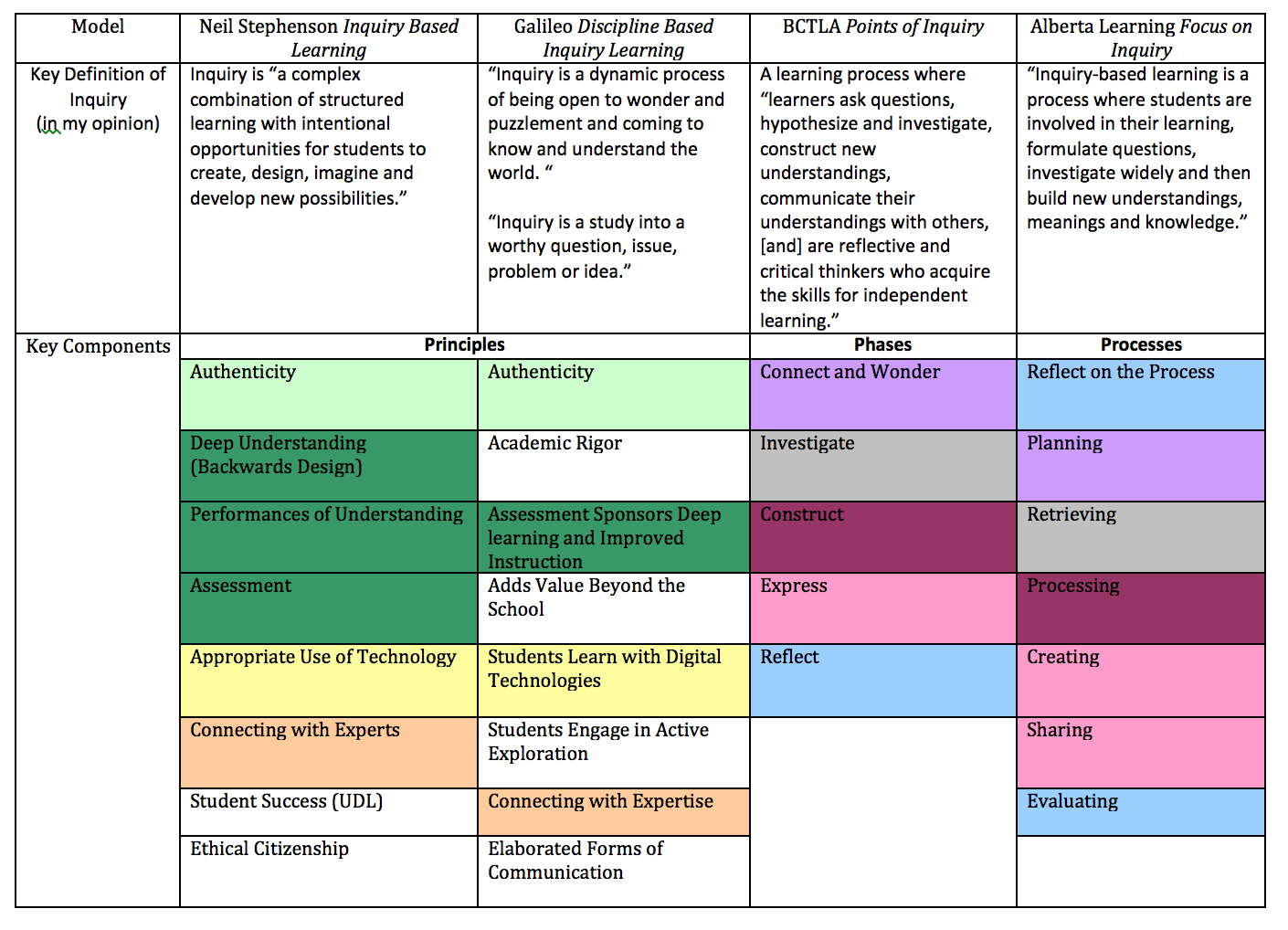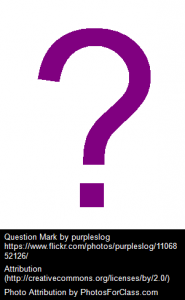 What inquiry model speaks to you?
What inquiry model speaks to you?
When I first began to explore inquiry, I began with Alberta Learning’s “Focus on Inquiry” as I wanted a clear structure to follow. I was learning what inquiry looked like along with my students and needed clear answers and steps. However, as my knowledge, understanding and comfort around inquiry developed, I felt restricted by the same structure and detail I had once desired. Now, I find myself drawn to Neil Stephenson’s “Principles of Inquiry” as I feel I’m at a point where I know enough to experiment with a more open approach to designing inquiry learning opportunities. I prefer Stephenson’s model over Galileo’s as I find it has more of a BC education context with references to Universal Design for Learning, our new curriculum and assessment practices (formative and summative).
What project/exemplar can you see yourself adapting for your students?
I loved the prompt “It really bugs me when . . “ from Ariel Schwartz’s article on “High School Students Come Up With A Genius Plan For Getting Ketchup Out Of The Bottle” (2014). It immediately encourages a problem solving approach to a real life problem that the learner is invested in. Perhaps this would be a great place to start inquiry with students in order to assess and respond to student inquiry skill sets (e.g. asking questions, collaborating, time management, goal setting, etc.).
What type of inquiry would you be more apt to suggest to different members of your staff versus your personal preference?
Different inquiry models will speak to different personalities and experience in inquiry. The structured steps (or phases and processes) of the BCTLA “Points of Inquiry” and Alberta Learning’s “Focus on Inquiry” are perhaps more appealing for teachers first exploring inquiry and/or teachers drawn to more linear processes (although this is not to imply that either of these models encourage a linear learning path). Both these options are also very similar to the research process and scientific method, allowing teachers to begin on familiar ground. While “Focus on Inquiry” offers a very detailed break down for those looking for a complete “how to” package, the “Points of Inquiry” are couched in familiar BC curriculum format along with a scope and sequence spanning Kindergarten to grade 12.
Galileo and Neil Stephenson’s inquiry principles offer a framework to inform and evaluate inquiry design. These models will likely attract non-linear thinkers who prefer to design learning opportunities holistically. As well, teachers who are comfortable with the big concepts and processes of inquiry might eventually prefer the freedom these models offer.
What essential questions excite you?
What is the nature of evil? (I think this would be a great overarching inquiry theme for an interdisciplinary senor English and Social Studies inquiry.)
What are the phantom skills we assume students have (and need) to successfully engage in inquiry based learning opportunities? (Having taught 8 years in an alternative setting, this question is crucial.)
And any other thoughts, ideas, comparisons that will craft your understanding
I always love the big picture. In order to find it, I broke down the four inquiry models we are considering into their key components (in my opinion), laid them out next to each other and then compared and evaluated them.

 n light of the possible consequences of ignorance . . .
n light of the possible consequences of ignorance . . .


